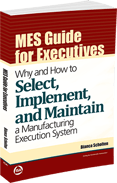
Social Media Contest Honor a female engineer, win a T-shirt! (Details below).
June 23 is International Women in Engineering Day.
That’s twenty-four hours dedicated to honoring the amazing contributions that women have already made in the engineering and automation industry, all while looking forward to the innovations that women will make in the future.

To celebrate, the International Society of Automation is highlighting a few of our members who have paved their own way in a field that is constantly growing, constantly changing, and like automation itself, constantly evolving.
Click through to read interviews from our members and be sure to interact with our posts on social media!
To all women in engineering, thank you for creating a path for future generations to do the same. We are so appreciative of all that you do.
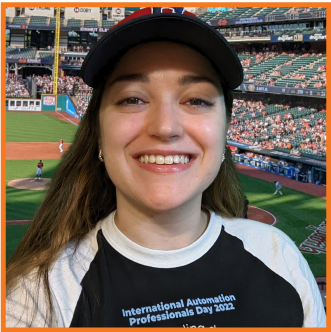
Sherry LaBonne
Sherry LaBonne graduated from Cleveland State University in Ohio and received her degree in chemical engineering. She is currently working as a product manager at Rockwell Automation and has been an ISA Member for three years.
A chat with Ms. LaBonne
ISA: Tell us about your career!
Sherry: Since graduation, I’ve spent my career working at Rockwell Automation. I started as a controls engineer, designing and commissioning industrial automation control systems. About a year ago, I transitioned into software product management.
Today I work on a team of product managers for our next-generation automation design software. I’m responsible for running our Preview Release Program, where we share upcoming features, software improvements, and collect user feedback. I also coordinate the iterative improvements process we use to turn that feedback into an enhanced product for our customers.
ISA: What made you want to pursue a career in this field?
Sherry: While my degree is in chemical engineering, I pursued a career in automation and controls because that is a very flexible skill set and highly transferable to many different industries and locations. I also believe, more broadly, that automation is here to stay, and there is a lot of career stability here that may not exist in other fields.
ISA: What are some of the best things about being a member of ISA?
Sherry: The best thing about being an ISA member, hands down, are the other ISA members! I’ve met so many wonderful people willing to share their knowledge and expertise. They are also willing to encourage and mentor those of us who are still early in our careers.
I appreciate the opportunities I’ve been given to develop my leadership skills. At every level, from international committees to local sections and across every subject matter area from instrumentation to cybersecurity—there are many volunteer opportunities available if you let someone know that you’re interested!
Lastly, I appreciate that through ISA, I can remain knowledgeable about controls engineering, the discipline I pursued when I first started my career. Controls engineers and technicians will use the software I work on now, and I can’t be a good product manager without understanding their perspectives.
ISA: What advice do you have for anybody who wants to get into a career in automation/engineering?
Sherry: Networking within your company is important for career advancement, but don’t discount the importance of forming a network within your wider industry as well. ISA involvement is a great way to do that.
Never forget how cool your job is! Our work is a critical enabler for industries producing energy, processing food, manufacturing vital products, and adding many other things to the world safely and efficiently. Let that motivate you when things get tough!
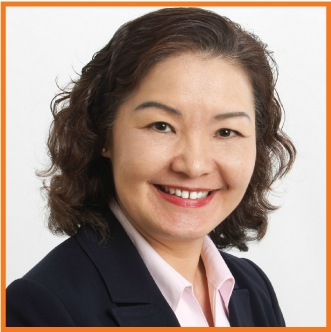
Dr. Penny Chen
Dr. Penny Chen received her Ph.D. in electrical engineering from Northwestern University. Currently, she serves as the principal technology strategist at the Yokogawa U.S. Technology Center. She has been an ISA Member for 14 years, including being a senior member and an ISA Fellow.
A chat with Dr. Chen
ISA: Tell us about your career!
Penny: I am responsible for technology strategy, standardization, and exploring new technologies for industrial applications with a focus on robotics, artificial intelligence, wireless technologies, smart sensors, etc., for autonomous operation.
ISA: What inspired you to achieve a career in automation/engineering?
Penny: I want to make society better.
ISA: Was there a moment in your life that clicked telling you that this is what you wanted to do?
Penny: I have always been excited to use a variety of technologies in industrial applications to enhance operational efficiency through automation and improve the safety of the working environment.
As an electrical engineer, creating and applying the best and latest technologies to enhance human society has always been my passion. After graduating with a Ph.D. in electrical engineering from Northwestern University, I joined the communication industry and focused on wireless technologies like cellular and mobile (wide area wireless), WiFi (local area wireless), Bluetooth (personal area wireless), and others. I was excited that wireless technologies might become the major communication technology that transforms our working style.
When the opportunity came to use wireless technology for smart sensors in industrial automation, it clicked for me. I foresaw the great potential of using wireless technologies to enhance automation, improve safety, and better our society. I certainly wanted to be part of it. Therefore, I joined Yokogawa. My first day on the job was joining the ISA100 wireless standardization committee meeting.
ISA: What advice would you give to other women who want a start career in STEM but don’t know where to start or are nervous?
Penny: STEM is a great field for female scientists and female engineers. Follow your passions and do the best you can in your field. Don’t allow others to define what you can do and who you want to be.
ISA: What do you love most about your field?
Penny: The process industry is a traditional and important industry that supports every corner of society. Even though it is a traditional industry, it leverages many of the latest technologies. Currently, I am leading the Yokogawa Robotics Task Force and am investigating how to use robotics to enhance safety and improve operational efficiency. This is a very interesting but challenging project because of the uniqueness of the process industry. The thing I love the most about my field is through using different technologies; I can sense and see how my contributions improve society.
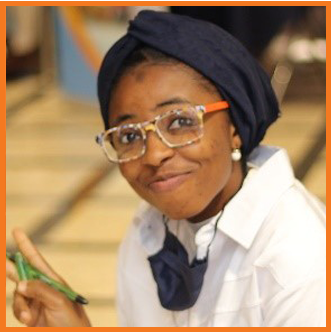
Mariam Sulleiman
Mariam Sulleiman graduated from the Federal University of Technology in Nigeria and received her degree in electrical and electronics engineering. She is currently working as an intern with Process and Control LLC and is the first female engineer in her family.
A chat with Ms. Sulleiman
ISA: Tell us about your career!
Mariam: A few of my tasks include designing and building industrial control panels as well as motor and I/O control panel designs.
ISA: What made you want to pursue a career in this field?
Mariam: I was inspired to pursue a career in engineering and automation because it provides me with the knowledge and skills necessary to discover and develop solutions to problems that affect my community. I want to be more than what my family and community dare to be. I want to be an achiever. I am the first female to earn a degree in electrical and electronics engineering in my family and community, which is an honor and a privilege for me. I want my story to motivate other young girls to pursue a career in STEM.
ISA: Do you ever have moments on the job that let you know this is where you are meant to be?
Mariam: Yes. It occurs anytime I am working on an engineering project. There is a sense of responsibility I get any time I identify a problem or need, and I immediately start thinking and designing ways to solve it.
ISA: What advice do you have for other who wants to get into automation/engineering?
Mariam: The advice I will give to other women especially is that they should believe in themselves and never give up on their dreams. It might appear intimidating and difficult, but if you have faith in yourself, everything will automatically fall into place. Look for a successful female leader or mentor to shadow. This is someone who can encourage and guide you through the process. Having a mentor who believed in me was extremely beneficial because there were times when things could become tough, but what helps is having someone who has been in your shoes and has successfully navigated similar challenges and can guide you. Finally, join a local or international community that will support you and help you advance your career, such as the International Society of Automation, Automation Ladies, the Association of Professional Women Engineers of Nigeria (APWEN), the Institute of Engineering and Technology, and so many others!

Emily Henry
Emily Henry received her bachelor of science in electrical engineering from Clemson University. Currently, she is working as a safety instrumented system (SIS) design engineer for aeSolutions, a process safety lifestyle company. Emily has been an ISA member since 2018 and appreciates the long-lasting connections she has made with colleagues.
A chat with Ms. Henry
ISA: Tell us about your career!
Emily: My current role involves leading SIS design projects, interfacing with clients to discuss design challenges and solutions, and sometimes traveling to client sites to walk down project equipment. I do safety instrumented function reliability calculations, determine the requirements for how safety functions must operate, and develop procedures to appropriately test safety functions in order to meet ISA/IEC and equipment manufacturer standards.
ISA: What inspired you to achieve a career in engineering?
Emily: I got involved in introductory engineering classes in high school and participated in my high school FIRST Robotics team. Those experiences opened my eyes to the multitude of different engineering disciplines and opportunities to find something I was interested in pursuing as a college major and future job.
ISA: Was there a moment in your life that “clicked” telling you that this is what you wanted to do?
Emily: Maybe not one specific moment, but after being a safety captain on my robotics team and being part of the robot electrical wiring team, I knew that continuing to study something in the realm of electrical engineering was likely my path. It didn’t click until after I got my first job as an instrumentation engineer that safety design was the piece that interested me the most and would utilize my knowledge of electrical engineering. Being an SIS engineer is something that I do well partly because I enjoy continuously learning about the field.
ISA: What advice would you give to other women who want a career in STEM but don’t know where to start?
Emily: My advice would be to take advantage of opportunities to learn from others about various STEM fields. It might be a bit nerve-wracking to attend a meeting with other industry professionals or reach out to a potential mentor figure to ask questions. However, there are so many opportunities to connect with people either through professional organizations like ISA, student organizations at the college level or through personal contacts. One of my colleagues plans to connect me with his niece, who is about to graduate from high school and has questions about STEM professions. I’m more than happy to chat with her to offer any perspective I can. I’ve also helped students update their resumes when searching for STEM jobs and provided input on what I have experienced when job hunting. More often than not, STEM industry professionals are willing to connect with prospective future STEM professionals and have honest conversations to answer their questions. It has always benefited me to make connections and put myself out there to learn about opportunities in my industry and network with others. I’ve made some great friends along the way too. So just take that chance and talk to people about their experiences or join a professional society to learn about growth opportunities. You won’t regret it!
ISA: What do you love most about your field?
Emily: I love that it is a dynamic field that is evolving in complexity and importance. I’m never bored since my projects can range across all types of manufacturing or chemical processes. I’m constantly learning how to apply core knowledge from my degree and work training to new subject matter and end-user applications. It’s very rewarding to know you’ve provided a design service that benefits a client through safe operations and the ability to maintain their systems accordingly.

Jessica Morell
Jessica Morell is a Manufacturing Operation Management and Manufacturing Execution System (MES MOM) and automation associate manager at Accenture, an information technology company. She received her degree in electrical and computer engineering technology from the University of Dayton and is actively involved in ISA’s Smart Manufacturing and IIoT Division.
A chat with Ms. Morell
ISA: Please describe your current career.
Jessica: In my current role with Accenture, I work with clients to digitize and innovate their operations, manufacturing, and their products. I have worked on multiple projects, but I am currently supporting a large MES implementation.
In my previous roles, I was a technical product manager and solutions consultant. I worked for two industrial automation solution supply companies (WESCO and Revere Electric), both Rockwell Automation channel partners. At both organizations, I managed the automation, software, industrial networking, IIoT, and Industry 4.0 solution portfolios. I managed the product offering, go-to-market strategy and was the key technical resource on those solutions.
ISA: What made you want to pursue a career in automation?
Jessica: There are so many options for you when you are graduating with an engineering or technical degree; it was actually a bit overwhelming to me. I knew that I would enjoy variety in my day-to-day activities, interacting with clients, and manufacturing (it is basically how it's made everyday!) and that is why I decided to take the industrial automation technical sales role out of college. What I didn't know at the time was that I would fall in love with manufacturing and the innovation around it. Innovative technology in manufacturing positively impacts everyone in the world. Sometimes making an impact on the world is as simple as helping ensure everyone has access to food, starting with producing it sustainably.
ISA: How long have you been a member of ISA?
Jessica: I have been a member of ISA for over two years. I am the marketing chair for the Smart Manufacturing and IIoT Division. I was also on the Board of Directors for the Will-Dupage Section.
ISA: What inspired you to focus on a career in IIoT?
Jessica: When I was starting out my career, Ethernet/IP was still a “newer” thing in manufacturing and most of the places I was visiting were using PLCs older than me! I saw a real opportunity for growth there, and industrial networking lead to IIoT as I moved through my career. It's a very cool space to be in with tremendous growth potential, especially when it is combined with AI, blockchain, etc.
ISA: Was there a moment in your life that “clicked” telling you that this is what you wanted to do?
Jessica: Honestly, it clicked in the last few months, after almost 10 years in! I had a realization that everything in my career so far happened for a reason to get me to where I am today and I was so proud of myself. There were some low points in my career and some real challenges that tested me, but they happened for a reason and the path I took was the right one, or I wouldn't be where I am today.
ISA: What advice would you give to other women who want to pursue a career in STEM but don’t know where to start or are nervous?
Jessica: You will never know what will happen if you don't do it. Take the chance, the risk, the opportunity. Nerves are hard to calm, but remember that confidence is a choice just like most things in life. I worked with a professional coach for a few years. It was the best thing I did in my professional and personal life. I learned so much about myself and the type of leader I am. One of the best things I learned is that we choose to feel a certain way. You have the choice to feel a certain way about something and you are in control.
The second-best thing I learned was that other people do, say, and act based on how they feel or their insecurities. It has absolutely nothing to do with you! Those may seem like simple things, but that’s important to know as you navigate your career. I remind myself of these things daily.
Don’t put pressure on yourself to make the perfect career choice when you are starting out. You can pivot and try new things; everyone's path looks different. Take a deep breath and release the pressure to make the perfect choice. Also, leverage your resources, network, and seek out mentorship. Learn what you can about your interests and options.
ISA: What do you love most about your field?
Jessica: There are a lot of great aspects, but I love the ability to learn, adapt to new situations, and grow every day. I also love knowing that what I do can impact the world in a positive way!

Social Media Contest
In honor of International Women in Engineering Day, we are holding a contest! Do you know a female engineer who has made a significant difference in your life or career? If so, we want to know about her!
Please comment with a video and/or written testimonial on one of ISA’s social channels: Facebook, Instagram, LinkedIn, Twitter, or TikTok, and be sure to use the hashtag (#ISAInspire) and tag the person who inspired your testimonial! Video testimonials are highly encouraged and should not exceed 60 seconds; however, written testimonials will also be accepted. Please limit written testimonials to no more than 250-300 words. All testimonials must be submitted before 11:59 E.T. on 23 June, International Women in Engineering Day.
To celebrate the occasion, the winner and the person who nominated her will each get to choose a shirt in one of the three International Women in Engineering T-shirt designs below. The winner will be announced on 26 June.
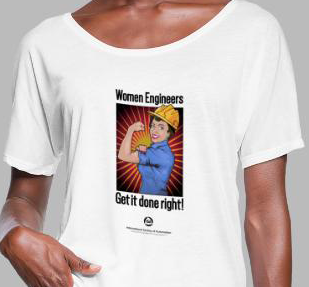

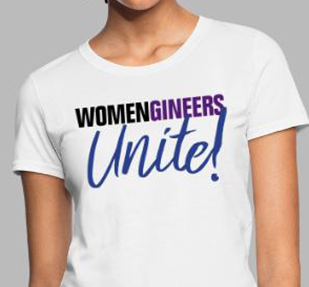

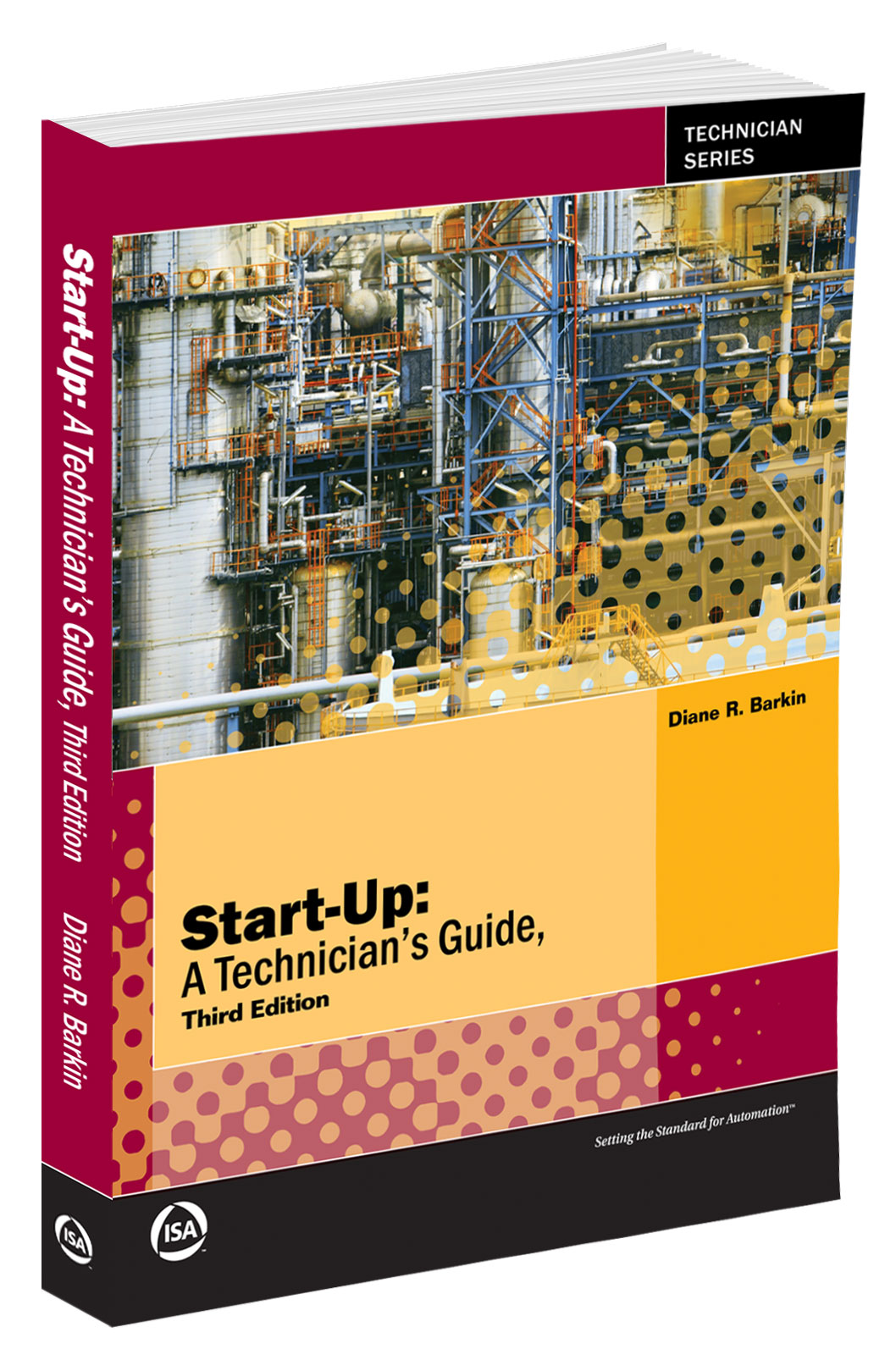
Start-Up: A Technician’s Guide, Third Edition
by Diane R. Barkin
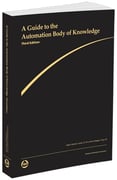
A Guide to the Automation Body of Knowledge
edited by Nicholas P. Sands, P.E., CAP®, and Ian Verhappen, P.E., CAP®
- “Chapter 35: Data Management” by Diana Bouchard
- “Chapter 19: Operation Training” by Bridget Fitzpatrick

Honoring Bridget Fitzpatrick
Bridget Fitzpatrick was a pioneer, engineer, and incredibly beloved member of our ISA community. She played an instrumental role as a standards leader on several committees and won several industry awards. Bridget was named an ISA Fellow in 2016 and was also one of the four inductees to the Control Process Automation Hall of Fame in 2021. ISA honors her legacy and the lifelong contributions she has made to the field of automation.


